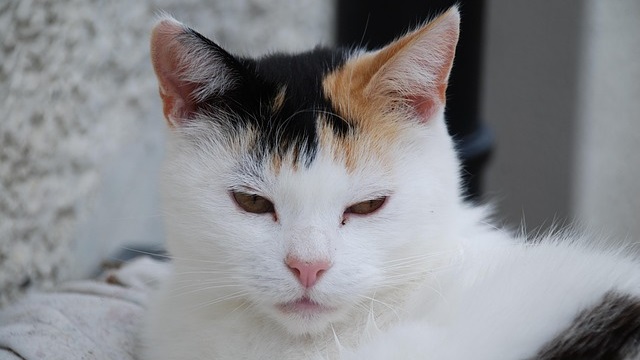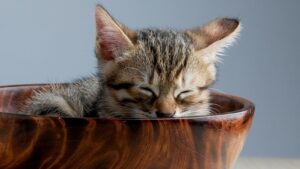Why Is My Cat Peeing on My Bed? Understanding Feline Behavior and Health
You’ve just finished washing your sheets (again), after finding yet another wet spot where your cat had been napping. Understandably, you’re frustrated and asking yourself, “Why is my cat peeing on my bed?” This behavior is not only unpleasant but also puzzling, especially if your cat has been trained to use the litter box for years.
Although it may feel like your cat is doing it out of spite, the truth is that cats rarely act out without reason. Reasons are numerous, from a urinary tract infection, stress from a new pet, to a dirty litter box. Regardless of the cause, the point is that there is often an underlying medical, emotional, or environmental trigger for such behavior. Therefore, understanding it is the first step toward solving the problem compassionately and effectively.
- Understanding why your cat is peeing on the bed often involves investigating underlying medical, emotional, or environmental issues.
- Health problems like urinary tract infections, kidney disease, or bladder inflammation can cause inappropriate elimination.
- Behavioral triggers, such as litter box aversion, stress, or separation anxiety, can lead to this frustrating behavior.
- Monitoring patterns like multiple incidents or avoidance of the litter box is crucial for identifying serious issues.
- The Maven Pet Health Monitor can help track your cat's health and detect early signs of distress or discomfort.
What Health Issues Can Cause This?
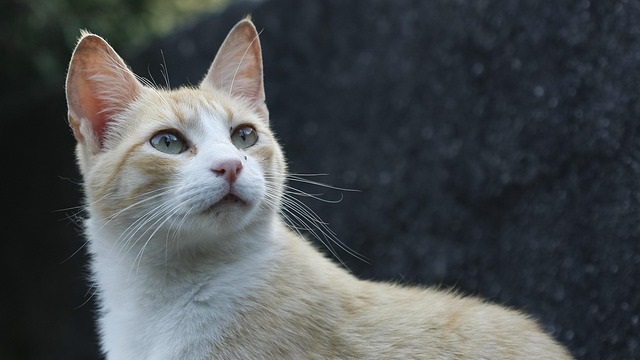
If your cat is peeing on the bed suddenly, it’s important to consider underlying health issues before assuming it’s a behavioral problem. Many medical conditions can cause a kitty to avoid the litter box, even if they’ve been reliably using it for years. Let’s check out the most common ones.
Urinary Tract Infections (UTIs)
A urinary tract infection is a common culprit when a cat pees on the bed on purpose, or so it may seem. In reality, the pain and urgency caused by a UTI can make it difficult for a cat to reach the litter box in a timely manner. The softness of the bed may also feel soothing compared to a hard litter surface.
Bladder Inflammation or Stones
Bladder inflammation, such as feline idiopathic cystitis (FIC), or the presence of urinary stones, can cause frequent and painful urination because they irritate the bladder’s lining. These conditions may lead to accidents, such as urinating on the bed unexpectedly, especially during flare-ups or stressful periods.
Kidney Disease
Chronic kidney disease can result in increased thirst and frequent urination. A feline with kidney issues may not be able to properly concentrate urine and conserve water. Therefore, they may not always reach the litter box in time, which can also lead to inappropriate elimination in soft, accessible areas, such as the bed.
“Every time Umi is hospitalized, it’s for like four days and it costs over $5,000… Maven has helped me not only save money but also save his life”
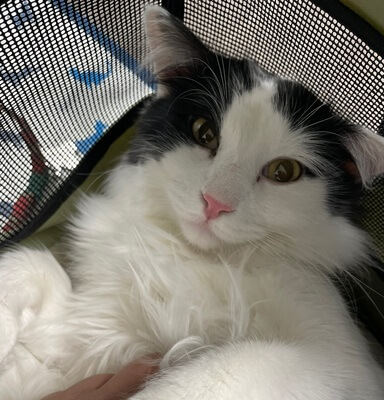
★★★★★
Jessica Ortiz
Umi
Painful Urination or Discomfort
If urination is associated with pain or burning, your furball may begin to associate the litter box with discomfort and choose to relieve themselves elsewhere.
Importance of Ruling Out Medical Conditions First
Before assuming that your cat pees on the bed on purpose due to behavioral issues, it’s vital to have them evaluated by a veterinarian. Identifying and treating medical causes is the first step to resolving the problem and ensuring your cat’s comfort and health.
What Behaviour Triggers Can You Consider?
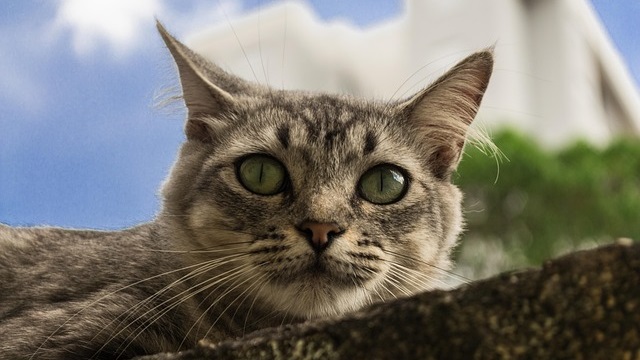
If you’ve ever wondered why would a cat pee on your bed, the answer may lie in behavioral triggers rather than just medical conditions. Cats are highly sensitive creatures, and even small changes in their environment or routine can lead to inappropriate urination. Here are five behavioral reasons to consider:
- Litter box aversion or cleanliness — Cats are fastidious animals. If the litter box is dirty, in an uncomfortable location, or associated with pain from a past illness, your cat may avoid it altogether. They may also avoid it if they don’t like the size, texture, or scent of the litter. Aside from keeping it clean, make sure you have as many boxes as you have kitties, plus one.
- Stress or anxiety (new pets, visitors, loud sounds) — Sudden changes, such as moving, having guests over, introducing a new pet, or even losing another four-legged friend, can cause anxiety. Cats may respond to stress by urinating on familiar areas, such as your bed, which contains your scent.
- Separation anxiety — If you’re away more often than usual, your cat may develop separation anxiety. Thus, a cat peeing on a bed at night or day could be a way of coping with the emotional distress. Remember that your furball may also do this because they miss you, especially if you don’t spend enough time interacting with them.
- Marking behavior or territory disputes — Unneutered male cats or cats living with others may mark territory, especially if they feel threatened or insecure. On the contrary, when female cats are in heat, they may urinate more often, as their urine contains pheromones and hormones that alert potential mates to their readiness to breed.
- Bedding material holding scent — Soft bedding absorbs and retains smells, including the cat’s own scent, which can encourage repeat urination.
While addressing this issue, also pay attention to related signs, especially if your cat is not eating, as they may indicate a deeper emotional or health concern.
When Is It a Pattern to Worry About?
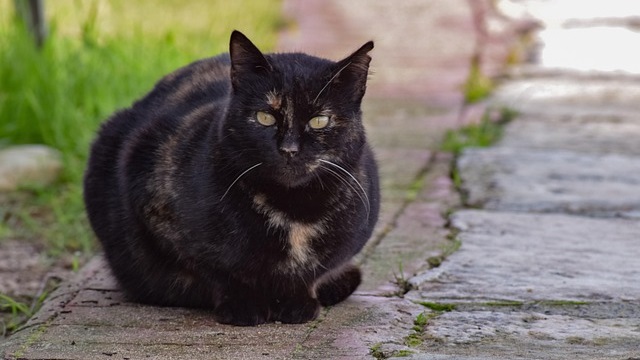
Occasional accidents can happen, but if you’re constantly asking, Why is my cat peeing on my bed, it may be time to look for signs that the issue has become a serious pattern. Here are key indicators that this is more than just a one-off incident and warrants closer attention:
- Multiple incidents within a short timeframe — If your cat urinates on the bed more than once in just a few days, this could signal a developing issue (either behavioral or medical) that needs immediate investigation.
- Avoidance of the litter box altogether — Complete rejection of the litter box often points to discomfort, stress, or a negative association with the box. It’s essential to evaluate the box’s cleanliness, location, and whether your cat experienced any discomfort while using it.
- Urinating in other soft areas like laundry or sofas — If your feline friend also targets piles of clothes or cushions, it may be drawn to soft, absorbent areas that retain its scent or your scent, especially during emotional distress.
- Signs of physical discomfort — Straining to urinate, vocalizing, or licking excessively afterward can indicate medical problems. Just as you may wonder, “Why is my cat licking me?”, excessive self-licking could be your cat’s way of signaling pain or discomfort.
How the Maven Pet Health Monitor Helps

The Maven Pet Health Monitor is a valuable tool for pet parents dealing with persistent behavioral issues like inappropriate urination. This smart collar is designed to support overall pet wellness by tracking your cat’s rest, activity levels, and water intake. These daily habits often shift subtly when a cat is unwell or stressed, and are the changes that pet parents may overlook right away.
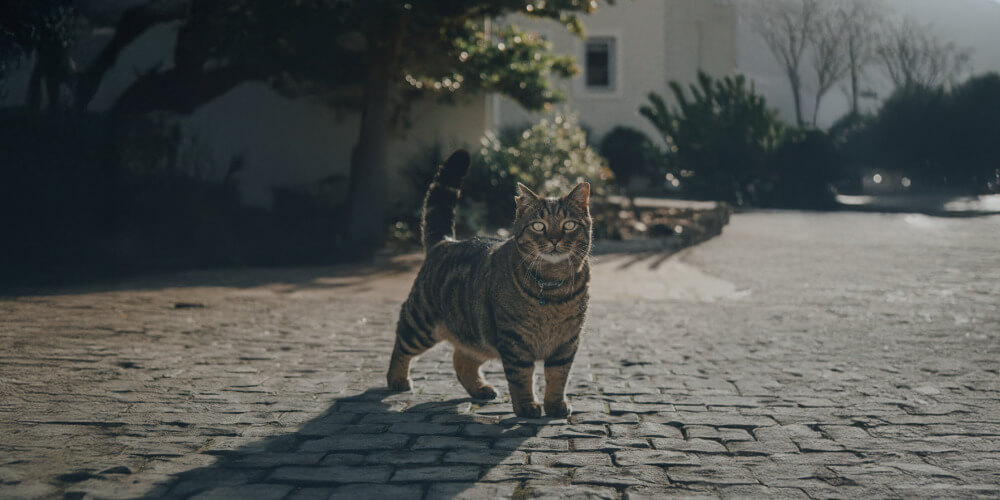
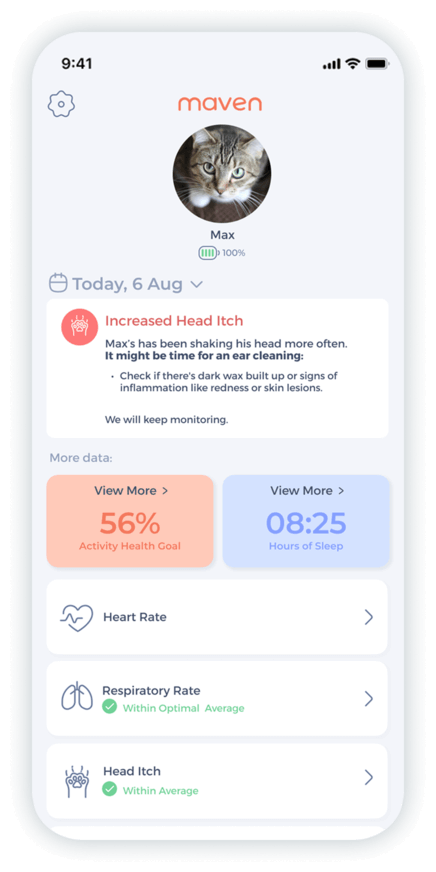
Monitor heart rate, respiratory rate, activity & rest, itch behavior.
Maven detects these small but essential variations and helps you catch early signs of pain, discomfort, or emotional distress. If you’ve ever been confused or wondered why my cat peed on my bed while I was sleeping, this pet smart collar can offer clarity.
By delivering real-time health insights, Maven allows you to take proactive steps before symptoms become serious or the the issue worsens. Whether it’s a developing urinary issue or stress-related behavior, Maven empowers you to act sooner and improves your cat’s comfort and long-term health.
Conclusion
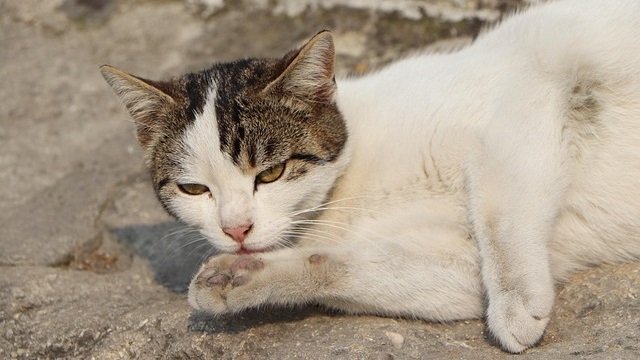
If you’re still asking, “Why is my cat peeing on my bed?”, remember that it could stem from medical issues like UTIs or kidney disease, or behavioral triggers like stress, litter box aversion, or marking. When this behavior becomes frequent or is accompanied by other symptoms, it is essential to consult your veterinarian to rule out serious health concerns.
For ongoing support, consider using Maven’s pet smart collar. It tracks your cat’s activity, rest, and hydration to catch subtle changes early. This proactive approach to pet wellness can help you better understand your cat’s needs and prevent problems before they escalate.
Maven Pet focuses on improving the quality of life of our pets with technology, using artificial intelligence (AI) to enable proactive pet care. By accurately collecting and monitoring pet data 24/7 and flagging any irregularities, Maven Pet empowers pet parents and veterinarians to stay ahead of potential health issues, ensuring the well-being and longevity of our beloved companions.

